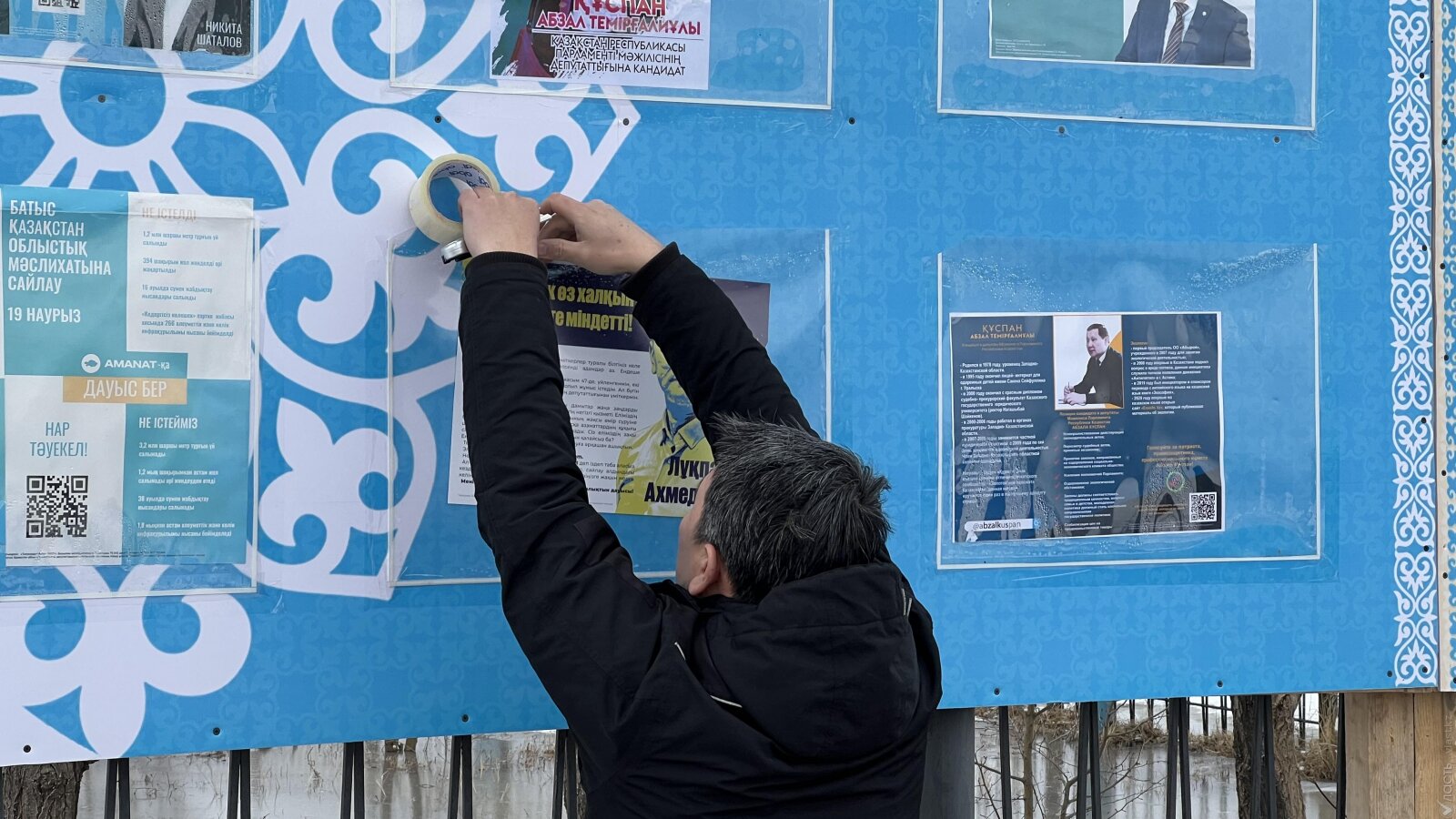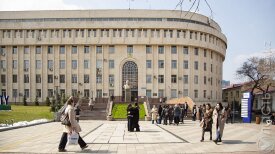The government said the upcoming parliamentary elections represent “the conclusion of an electoral cycle”. But in reality, these elections can be considered as the initial process by which Kazakhstanis reacquaint themselves with politics. After a 20-year hiatus, politics seems to be back.
Iliyas Yusupzhanov, a 20-year old writer, was the youngest candidate for a place in Almaty’s local assembly. Like many others, after being admitted to the campaign, he was struck off the race for an insignificant pretext.
Dozens of similar examples have dotted this campaign, all accompanied by ludicrous pretenses. Only in some cases were the candidates able to defend their legitimacy in court.
This struggle against the system represents the cost of such a lesson of democracy, which serves not only the candidates, but all the people across the country.
For the past two decades, politics in Kazakhstan has been mothballed. Similar candidates ran for indistinguishable parties on copy-pasted programs.
The authorities consistently demolished any opposition to the system and political plurality in general, turning the parliament into a decorative body and the local assemblies into a meaningless institution.
The reason that people campaign in a political race is obvious, for the first time in 20 years, it is finally possible. While most of them will be disappointed with the results after March 19 (traditionally, the counting of the votes is even more important than the campaign), many will continue to be involved in public debates and next time will probably become more recognizable for the voters.
A few more obvious things: The election campaign should not last only one month, this is ridiculous. Election dates should be more predictable to allow voters to make up their minds.
Elections cannot be considered fair and competitive until real opposition parties are included, while artificially-created pro-business and allegedly environmentalist parties are registered. Elections will not be fair so far as candidates are removed under far-fetched pretenses. Elections cannot be fair as long as election commissions are controlled by the ruling party. Elections will only become transparent when the manual count of the votes will be substituted with electronic, automatic machines.
And the list could go on, just like the debates regarding the pace we should keep in our path towards democracy. The government made it clear a long time ago: The pace should be slow, the process should be controlled, and the opposition should be made up of loyal politicians.
Despite all this, there is still a reason for optimism in this campaign.
Some of the independent candidates that are allowed to run understood the importance of defending their rights and their votes. For many people, their participation will make these elections more lively and significant. And this lesson of democracy will not be in vain, even if the new parliament next week looks a lot like the previous one. Just like the lesson of the "new Kazakhstan" that we already learned.
Поддержите журналистику, которой доверяют.








